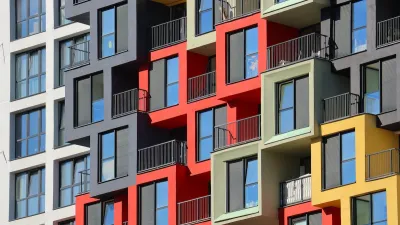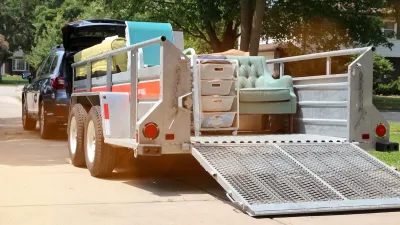One of the earliest researchers at Skype makes a compelling case for one of the potential applications of artificial intelligence: helping humans decide where and how to migrate.
An article by Silver Keskulla, founder of Teleportinc, begins by providing an introduction to the forms of artificial intelligence (AI) that are already contributing to the management of lives—from communications to dating websites to how cars work (and eventually, how self-driving cars will work).
Given the many forms and applications that AI has already taken, it shouldn't come as a surprise then that Keskkula and others are working to build software that helps people decide where to live and how to get there. "In short, a dating site between people and locations," explains Keskkula.
"Our vision," adds Keskkula, "is to make moving so easy and information about life quality so transparent that we would end up with a world where countries and cities compete for each citizen (not vice versa)." AI, he believes, will play a critical role in achieving that goal.
The remainder of the article introduces some of the questions asked and answered in the initial tests of the concept, which Keskkula describes as promising.
FULL STORY: AI will reorganize the human population

Manufactured Crisis: Losing the Nation’s Largest Source of Unsubsidized Affordable Housing
Manufactured housing communities have long been an affordable housing option for millions of people living in the U.S., but that affordability is disappearing rapidly. How did we get here?

Americans May Be Stuck — But Why?
Americans are moving a lot less than they once did, and that is a problem. While Yoni Applebaum, in his highly-publicized article Stuck, gets the reasons badly wrong, it's still important to ask: why are we moving so much less than before?

Using Old Oil and Gas Wells for Green Energy Storage
Penn State researchers have found that repurposing abandoned oil and gas wells for geothermal-assisted compressed-air energy storage can boost efficiency, reduce environmental risks, and support clean energy and job transitions.

Updating LA’s Tree Rules Could Bring More Shade to Underserved Neighborhoods
A new USC study finds that relaxing Los Angeles’ outdated tree planting guidelines could significantly expand urban tree canopy and reduce shade disparities in lower-income neighborhoods, though infrastructure investments are also needed.

California's Canal Solar Projects Aim to Conserve Resources and Expand Clean Energy
California’s Project Nexus has begun generating electricity from solar panels installed over irrigation canals, with researchers and state agencies exploring statewide expansion to conserve water and boost clean energy production.

HHS Staff Cuts Gut Energy Assistance Program
The full staff of a federal program that distributes heating and cooling assistance for low-income families was laid off, jeopardizing the program’s operations.
Urban Design for Planners 1: Software Tools
This six-course series explores essential urban design concepts using open source software and equips planners with the tools they need to participate fully in the urban design process.
Planning for Universal Design
Learn the tools for implementing Universal Design in planning regulations.
Heyer Gruel & Associates PA
City of Moreno Valley
Institute for Housing and Urban Development Studies (IHS)
City of Grandview
Harvard GSD Executive Education
Salt Lake City
NYU Wagner Graduate School of Public Service
City of Cambridge, Maryland




























